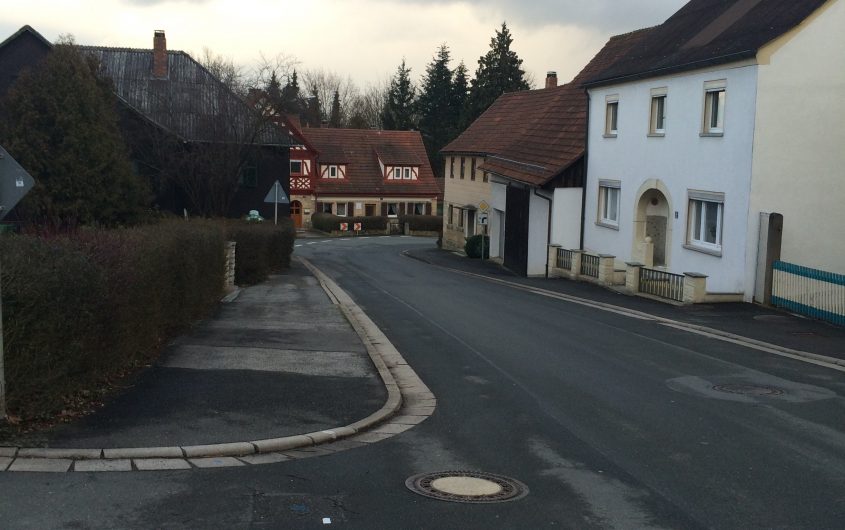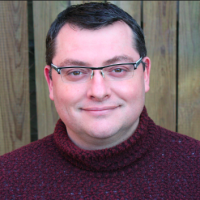
On the Passing of a German Generation

Eric Langenbacher
Senior Fellow; Director, Society, Culture & Politics Program
Dr. Eric Langenbacher is a Senior Fellow and Director of the Society, Culture & Politics Program at AICGS.
Dr. Langenbacher studied in Canada before completing his PhD in Georgetown University’s Government Department in 2002. His research interests include collective memory, political culture, and electoral politics in Germany and Europe. Recent publications include the edited volumes Twilight of the Merkel Era: Power and Politics in Germany after the 2017 Bundestag Election (2019), The Merkel Republic: The 2013 Bundestag Election and its Consequences (2015), Dynamics of Memory and Identity in Contemporary Europe (co-edited with Ruth Wittlinger and Bill Niven, 2013), Power and the Past: Collective Memory and International Relations (co-edited with Yossi Shain, 2010), and From the Bonn to the Berlin Republic: Germany at the Twentieth Anniversary of Unification (co-edited with Jeffrey J. Anderson, 2010). With David Conradt, he is also the author of The German Polity, 10th and 11th edition (2013, 2017).
Dr. Langenbacher remains affiliated with Georgetown University as Teaching Professor and Director of the Honors Program in the Department of Government. He has also taught at George Washington University, Washington College, The University of Navarre, and the Universidad Nacional de General San Martin in Buenos Aires, Argentina, and has given talks across the world. He was selected Faculty Member of the Year by the School of Foreign Service in 2009 and was awarded a Fulbright grant in 1999-2000 and the Hopper Memorial Fellowship at Georgetown in 2000-2001. Since 2005, he has also been Managing Editor of German Politics and Society, which is housed in Georgetown’s BMW Center for German and European Studies. Dr. Langenbacher has also planned and run dozens of short programs for groups from abroad, as well as for the U.S. Departments of State and Defense on a variety of topics pertaining to American and comparative politics, business, culture, and public policy.
__
I’ve been thinking a lot lately about my “Nazi aunt” (actually a great aunt) as I called her. Born a century ago in 1920 in northern Bavaria, Leni was a “true believer” in Hitler and Nazism until the day she died in 2003. A few years before her death, for instance, she told me that she was too young to have voted for Hitler in the early 1930s but then quickly added that she would have, had she been able to. My grandmother, her sister, who only started to speak more honestly about her siblings shortly before she died in the late 1990s, told me a story about Leni from the end of the war. As the Americans began to occupy Bavaria, Germans quickly disposed of any Nazi paraphernalia they had. Leni had hidden her cherished copy of Hitler’s Mein Kampf under her bed, but my great-grandfather found it, and, enraged, threatened to kick her out of the house. (There was nowhere to go to in 1945, given the destruction of most cities and the many refugees streaming in from the east.) She reluctantly threw it away. Just last year a cousin who had inherited all of Leni’s papers showed me her “certificate of racial purity” and her Nazi party and affiliated organizations membership documents. She was all in. She even had a Persilschein—the questionnaire administered by the Allies to determine how implicated Germans were—that exonerated her based on her young age (25 at war’s end). A few years before that her younger brother, Karl (who was the only sibling to overtly spout anti-Semitism in my vicinity), validated that she was indeed a true believer until death.
I sparred with Leni a lot. As the oldest sibling, she always ordered the others around and had a haughty “I’m the boss” attitude. One time in the 1980s we went shopping in a nearby city. She dramatically gestured to the full shops and bustling roads, proclaiming that at the end of the war, there was nothing here, nothing…and now, just look. She blamed the Allies for destroying the country. I said, no, it was Hitler who destroyed Germany. Another time, she told me that average people like her in the countryside had no idea what happened to Jews until after the war. I said that there were some Jewish families and businesses in the county seat, just five kilometers away from the ancestral village, who disappeared and whose shops were torched during the Kristallnacht pogrom of 1938. I asked her, what she thought happened to them? I said even if she didn’t know exactly, surely she knew that their fate was somewhere between bad and horrible.
Was Leni unique among her generation or even her nine siblings? From one perspective, yes. She was the only one to have had more than four or six years of education (Grundschule), and after the war she became a kindergarten teacher. She once gave me a book entitled Frauen um Hitler (Women around Hitler) that was a bit of a bizarre quasi-feminist tract in my recollection, emphasizing the many women like Magda Goebbels who exerted influence over der Fuehrer. I came to think that one reason for her lifelong support for the Nazis is that she credited them with saving her from the typical fate of women from regions like hers—Kinder, Kueche, Kirche (children, kitchen, church). She was also much more prosperous than her siblings, having married into the middle class (a veterinarian) and living in the center of a much larger nearby town.
In any case, her siblings were all working-class, life-long conservatives—strong supporters of Bavaria’s eternally ruling Christian Social Union (CSU). They loved Konrad Adenauer, Helmut Kohl, and, of course, the state’s own Franz-Josef Strauss. They were always tepid towards Angela Merkel—too “eastern,” too Protestant, and too social democratic. They rarely spoke about the past. When they did, they merely mentioned how little food there was during and after the war and how their generation just worked hard, saved everything they could, and rebuilt the country. Each sibling had a story about the first time they went to Nuremberg, Würzburg, or Munich after 1945 and saw the extent of the devastation.
Sometimes they would mention their half-brother who died in a military accident involving a horse right after war broke out in 1939. Karl spoke a little fondly about the time after 1945 when he was a prisoner of war working on a farm in France, which he made to seem like a working vacation. They attended mass but weren’t usually overtly religious and always praised how well-run Bavaria was thanks, of course, to the CSU. They weren’t particularly joyous when the country reunified, fretting about increased taxes and all the Ossis who were competing for scarce jobs in the vicinity.
They rarely left their town and never went beyond German-speaking Europe—South Tyrol was the most exotic destination. I’m not sure any of them even made it to Berlin—but then again, that was alien, Protestant Prussia after all. And for most of their lives, one would have had to have driven through the Ostzone to get there. On that note, every family trip in the seventies and eighties involved a pilgrimage to observe the iron curtain—just twenty kilometers away from their village. There was a whole “dark tourist” infrastructure including restaurants and ice cream stands. We never visited a former concentration camp or other Nazi historical site on any of those trips.
One exception in the family was my grandmother who emigrated to Cleveland, Ohio, in the early 1950s. Like the others, she worked hard for forty years in various factories, complained endlessly about unions, and was a staunch Republican voter. She especially liked Reagan. But, not one of her siblings (and only one relative from my father’s generation) ever visited her. There was always a little animosity toward the Americans (“Amis”) who had beaten and occupied Germany.
Another exception was the youngest of the family, Tante Ilse, born in 1930, who just passed away earlier this year. Ilse was the one who was the most honest with me and whose views I think evolved the most over her lifetime. Perhaps this was because she was only 15 in 1945. She inherited the family house from my great-grandfather who was the blacksmith working for the local lord—the whole village worked for that family until well after the war. Ilse was also deeply religious, helping to clean the local church just up the hill well into her 80s. Ilse married an expellee from Breslau in Silesia despite the family’s protestations that he was not Catholic. Later, she gave no thought to my father marrying an American Methodist, then me marrying a Japanese, and her own granddaughter committed to a Syrian refugee who came to Germany with so many others in 2015. Leni, by contrast, sent me a nice wedding card but told my father that she always thought I would marry a German. Na ja. In the early 1990s, Ilse had Russian Germans (Spaetaussiedler) next door, but she liked them because they worked really hard and went to church. She was supportive of refugee families moving into the village over the last few years because otherwise, the houses would be empty and derelict. She hated the Alternative for Germany and said they reminded her of Nazis.
About the past, a few years ago she told me about a time towards the end of the war when she took the train to visit a relative in a larger town about an hour away, only to arrive in the midst of an air raid. For her, that was evidence of how little information was available in the countryside. She also used that anecdote to support the common position that they really didn’t know about the Holocaust at the time. But she also added that once she did find out after the war, she couldn’t but condemn this crime against humanity.
These reflections and memories come to me not just because Ilse’s death—the last of that generation—has made me contemplative. More importantly, Leni, Ilse, Karl, my grandmother, and the others had a wide range of reactions to the Nazi regime, the war, the Holocaust, and the aftermath. Some evolved in their views, but others did not. Some could be swayed by truth and evidence, but others dug into their pre-existing worldviews. Some were simply too young to be too affected. For Germans like Leni, the Nazi virus infected her early and could never be eradicated—just repressed in public.
Perhaps another reason for these reflections now is that I think there are historical and contemporaneous parallels in other countries that have also gone through such a “hot,” traumatizing historical period. Will people in those places be open to facts and evolve in their views like Ilse, or will they dig in to their worldview for life like Leni?








